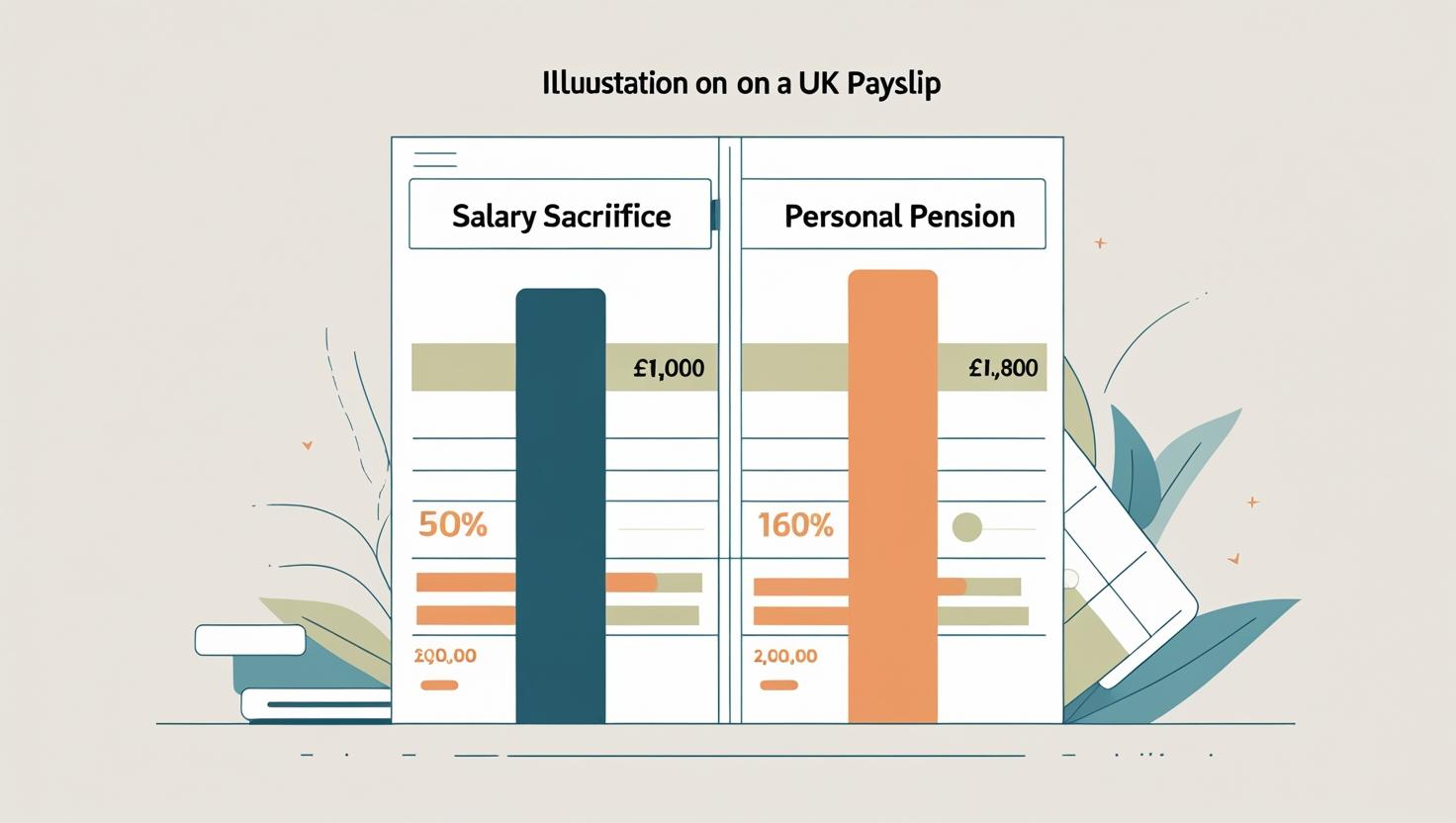
When it comes to retirement planning in the UK, how you contribute to your pension can make a significant difference to your take-home pay. Two common methods are salary sacrifice and personal pension contributions, and they operate in very different ways.
Let’s break them down and explore which might be better for you.
UK Salary & Tax Breakdown Calculator
If you live in Scotland, income tax is calculated differently.
Rates and thresholds set by Scottish Government.
A common tax code is “1257L” meaning £12,570 tax-free allowance. Check your payslip, P60, or HMRC letter for your correct code.
• Plan 1: Started before September 2012 in England/Wales
• Plan 2: Started after September 2012 in England/Wales
• Plan 4: Scottish students
• Postgraduate Loan: For master’s/PhD courses
Your payslip or SLC account will confirm your plan.
1. What is Salary Sacrifice?
With salary sacrifice, you agree to give up part of your gross salary. That portion is paid into your workplace pension before tax and National Insurance (NI) are calculated. As a result:
- You pay less Income Tax
- You pay less NI
- Your employer might even top up your pension with the NI they save
Example: If your gross salary is £40,000 and you sacrifice £4,000 into your pension, your taxable income drops to £36,000.
This saves you 20% Income Tax and 8% NI on the sacrificed amount (assuming you’re under the NI upper threshold). That’s a total saving of £1,120—more going into your pension, less coming out of your payslip.
2. What is a Personal Pension Contribution?
This is where you contribute to a pension out of your net (post-tax) income. You get tax relief from HMRC:
- Basic rate (20%) tax relief is added automatically
- Higher and additional rate taxpayers must claim extra relief via a tax return
Example: You pay £80 from your take-home income, and HMRC adds £20 (for basic rate taxpayers). If you’re a higher-rate taxpayer, you can claim back an additional £20 later, giving you £120 pension for a net cost of £60.
3. Which One Affects Take-Home Pay More?
- Salary sacrifice reduces your gross salary, so your payslip deductions shrink. This means more of your salary ends up in your pension and less is lost to tax.
- Personal pension contributions come out after tax, so they don’t reduce your Income Tax or NI upfront—just eventually via relief.
In short: salary sacrifice is usually more efficient.
4. When Personal Pensions Might Make Sense
- You’re self-employed and not eligible for salary sacrifice
- You want to contribute to a private scheme outside your employer
- You want control over your investment choices
- You’ve already maxed out your workplace pension contribution
5. Use Our Calculator to Compare
We’ve built a calculator that lets you see:
- Your take-home pay with and without salary sacrifice
- How pension contributions affect tax and NI
- Scenarios for basic, higher, and additional-rate taxpayers
Try the Pension Calculator now
If your employer offers salary sacrifice, it’s often the smarter financial move. But it depends on your income, tax rate, and pension goals.
Whether you want maximum tax efficiency or flexibility with investments, understanding the differences between these two pension approaches helps you make a confident decision for your future.

